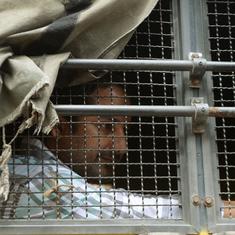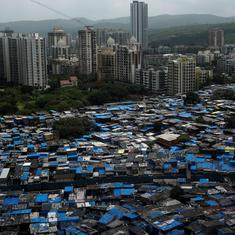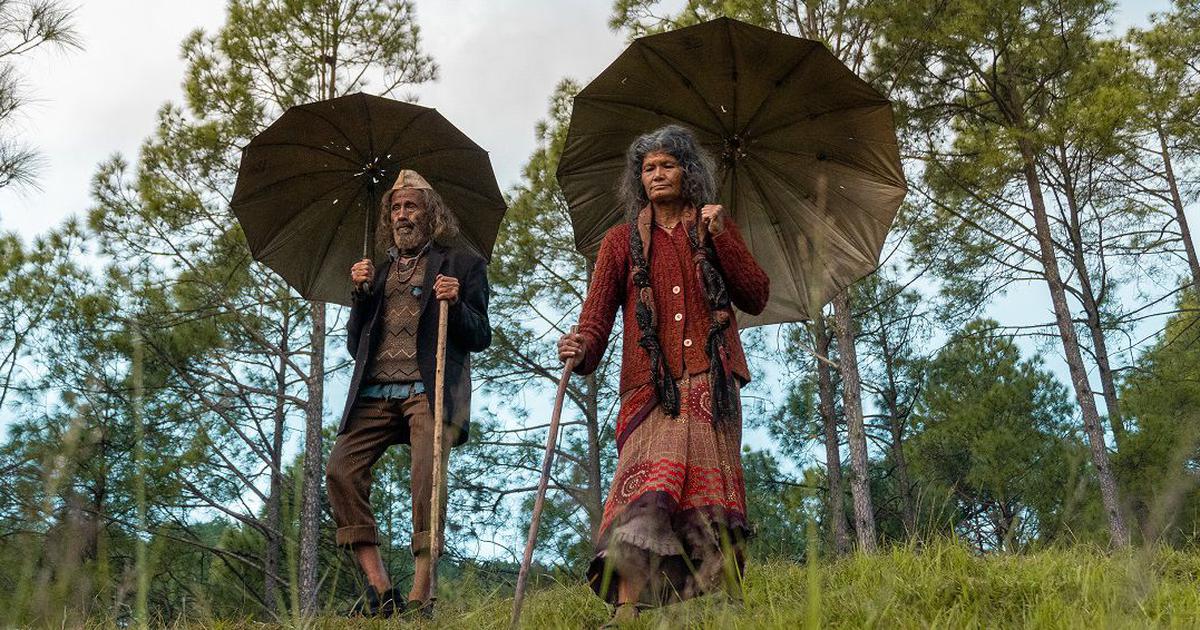If things had gone according to plan, Pyre would have starred Naseeruddin Shah and Ratna Pathak Shah as an elderly couple in a remote village in the Uttarakhand mountains. But things didn’t go according to plan – until they did.
It was the year 2020. Naseeruddin Shah got Covid, which made it difficult for him to shoot in higher altitudes. So Pyre’s writer-director Vinod Kapri decided to cast non-professional performers who were from Uttarakhand itself. He found the people he needed. Pyre went into production in 2022. It has been travelling to several festivals. Everywhere the movie is shown, audiences fall hard for the very old and very charming Padam Singh and Heera Devi.
Pyre is throbbing romance at its core, Kapri told Scroll. Kapri’s third fiction feature after Miss Tanakpur Haazir Ho (2015) and Pihu (2018) revolves around the goat herders Padam and Tulsi. They have been married for over 60 years. Their only son migrated years ago and hasn’t been back since.
Padam and Tulsi are among the last occupants of one of Uttarakhand’s ghost hamlets – villages that have been hollowed out by migration. When Tulsi falls ill, Padam has to summon his faraway neighbours by blowing on a trumpet he keeps specifically for this purpose. The trek to the hospital in the plains takes hours.
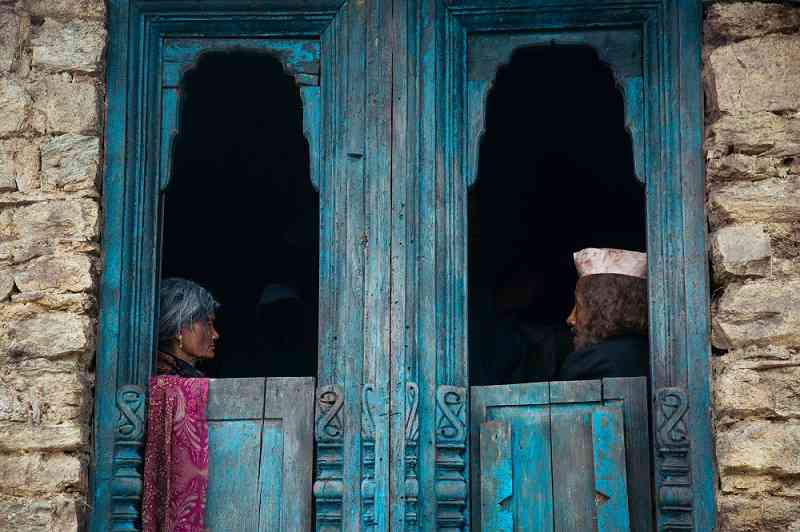
The Hindi-Kumaoni film movingly explores the couple’s isolation, poor health and the prospect of death. What is the point of living, they keep asking each other. Although Padam and Tulsi quarrel constantly and are fond of gallows humour, their mutual adoration is unmistakeable.
“The film is connecting with diverse audiences because of the couple’s loneliness, their bonding, the love and even the hate that is between them,” Kapri noted. “The story has a universal appeal.”
Kapri based Pyre on the hardships faced by the people of Kumaon, to which he belongs. The story is directly inspired by an elderly couple he met during a trek in Uttarakhand.
“I saw them grazing some 30-40 goats – that visual fascinated me,” Kapri recalled. When he asked them how they were faring, they told him that their children had gone away. Whenever the woman fell ill, they had trouble arranging for medical help. The old man told Kapri that each time he received help, he gave away a goat.
What happens when you run out of goats, Kapri asked. Came the reply: we will be gone before that happens.
“That thing remained with me, and I thought I should tell their story,” Kapri said. He started writing a script for a fiction film. He wanted to cast the same couple to ensure authenticity, and he even shot a few scenes with them, but it didn’t work out.
After the idea of working with Naseeruddin Shah and Ratna Pathak Shah fell through, and Kapri couldn’t find the replacements he wanted, the project was put on ice. Kapri directed the documentary 1232 KMs (2021), in which he followed a group of labourers cycling all the way from Ghaziabad to their homes in Bihar during the Covid lockdown.
Previously a television journalist, Kapri’s first documentary was the National Film Award-winning Can’t Take This Shit Anymore (2014), about sanitation in villages.
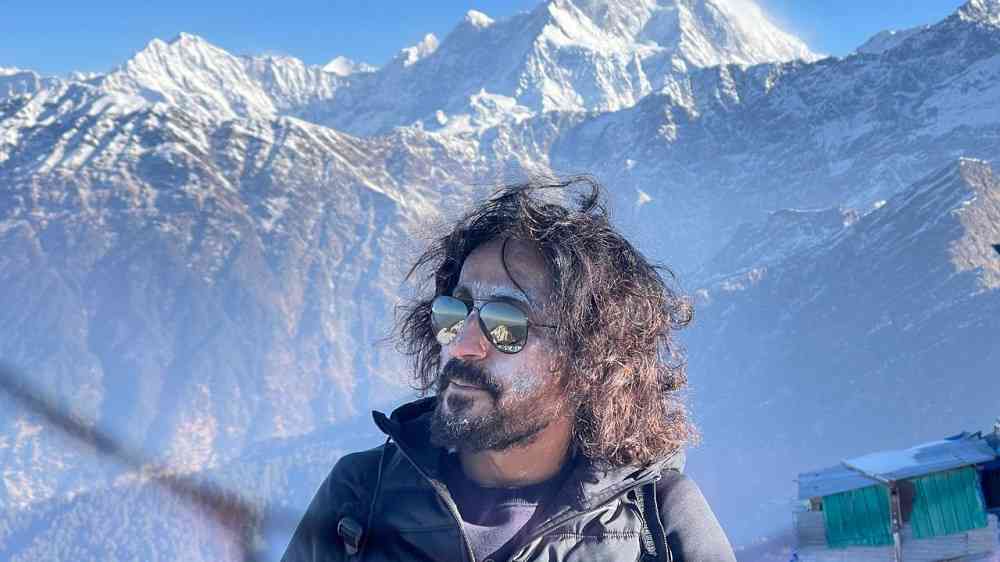
Sometime in 2022, Kapri met an uncle Padam Singh at a family gathering. The former Army havildar, who was in high spirits, challenged Kapri to try him out as an actor. Kapri asked his uncle to act out a scene – and it worked.
“I sent the video recording to my friends who are theatre and film professionals and they asked, who is this actor,” Kapri said.
But Kapri also needed someone to play Tulsi. He returned to the villages in Kumaon. He found a woman who looked the part. Even as he was talking to her, Heera Devi walked by, carrying a pile of wood on her head. When she was told that the film crew was looking for an actor, she said, “Haa, main hoon na heroine,” Kapri recalled. I can be your heroine.
“I loved that confidence,” Kapri added. “We asked her to enact a scene, and we realised that we had found our Tulsi.”
Kapri’s brief to Padam Singh and Heera Devi was that they were performing a dramatised version of their lives. In the film, Padam and Tulsi have a sacred relationship with their surroundings and the mountains – which was also the case with the actors.
“People who are especially from the characters’ generation consider themselves the children of the mountains,” Kapri said. This reverence partly explains why Padam and Tulsi, despite their tribulations, cannot bring themselves to move out of their village.
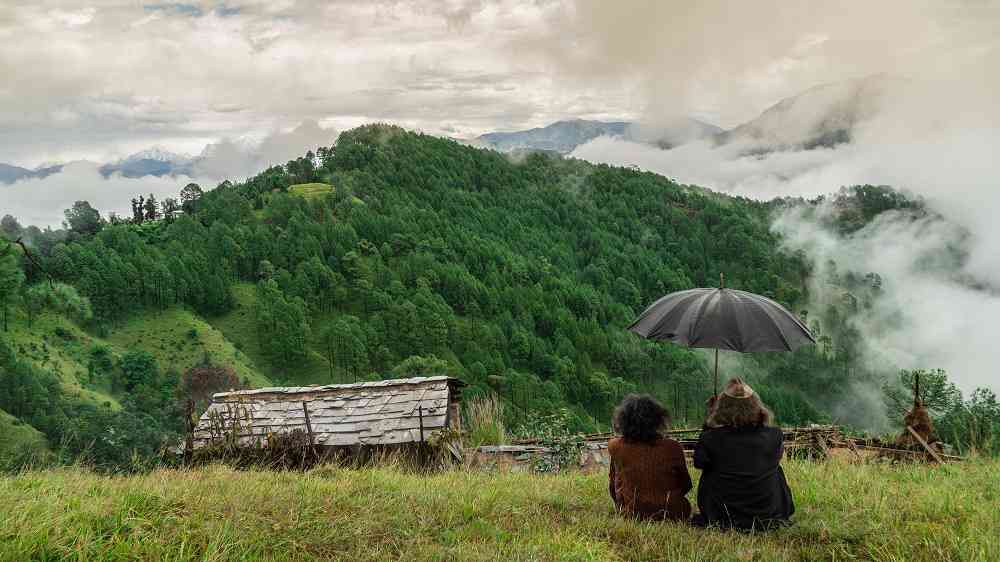
The shoot was a challenge on several fronts. Getting untrained actors to play a married couple wasn’t easy. Heera Devi, a widow, who was concerned about what her neighbours might think. She was initially uncomfortable playing another man’s wife, even though it was for a film. Kapri got Heera Devi’s son to persuade her to continue playing the part.
The other challenge was logistical. Pyre has been filmed entirely on location in and around Kapri’s own village in Kumaon. Cinematographer Manas Bhattacharyya brings out the area’s natural beauty as well as the forbidding expanse. The shoot, which took place in the monsoon in 2022, was strenuous.
“Rather than choosing a hotel that was many kilometres away, we decided to stay in my village,” Kapri said. Several people crammed into various houses, living like an extended family. Equipment had to be lugged around for hours. “There were no toilets, so we built toilets for our crew and handed them to the village later,” the 53-year-old filmmaker said.
One of the themes in Pyre is migration. The film’s secondary characters prepare to leave the village – and Padam and Tulsi – for work. However, Pyre isn’t about the poor job opportunities or underdevelopment in Uttarakhand’s hilly regions, Kapri said.
“I didn’t want to make a preachy film or spell out the situation,” he said. “For me, the film is a beautiful love story, like the story about Franz Kafka, the young girl and the doll, or Gabriel Garcia Marquez’s No One Writes to the Colonel. I wanted to stick to the story of a couple who love each other and hate each other and fight a lot.”
The poignant relationship impressed German editor Patricia Rommel, who edited Pyre, Gulzar, who contributed lyrics for a song for free, and Canadian composer Mychael Danna (Life of Pi, Where the Crawdads Sing). Danna was on a sabbatical when Kapri approached him, but was so moved by the film that he agreed to compose the background score for a pittance, Kapri said.
Pyre won audience choice awards at the Tallinn Black Nights Film Festival in Estonia in 2024 and the Asian Summer Film Festival in Spain earlier this month. Kapri has a few more international showings, including the London Indian Film Festival and the Indian Film Festival Melbourne, before he explores a distribution deal in India.
“Independent films with non-actors are almost impossible to make, but the response has been good,” Kapri said about the self-financed movie.
Padam Singh and Heera Devi attended the screenings in Tallinn. They had never been on a plane, let alone travelled abroad before. They didn’t even have passports. The characters in Pyre are unable to leave, but the actors who play them have gone places.
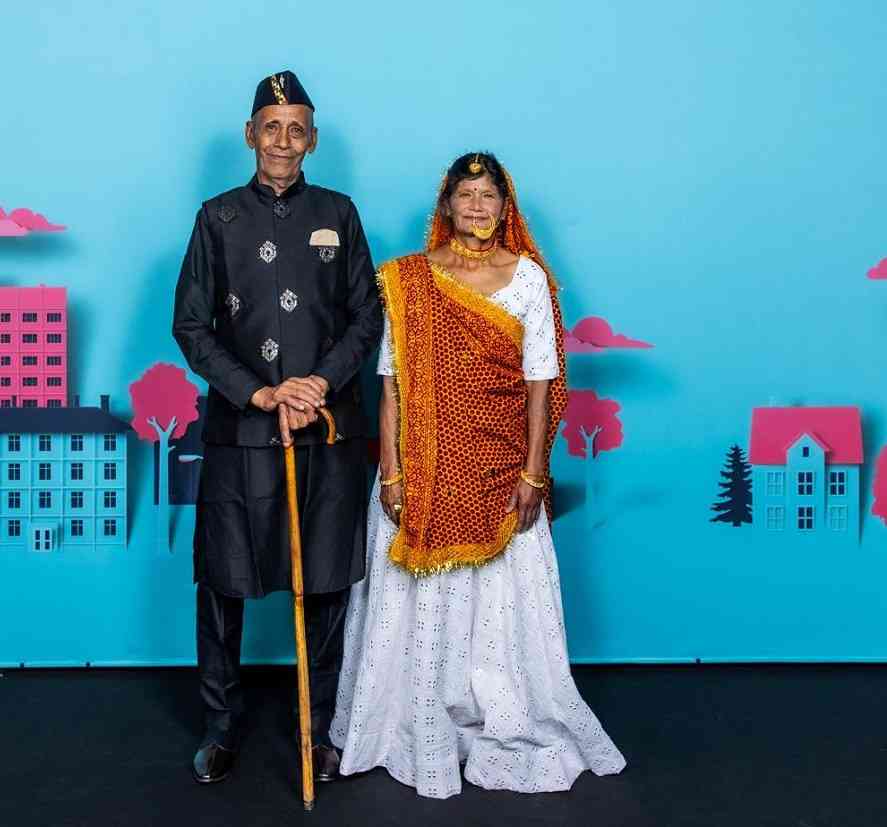
Also read:
‘1232 KMs’ review: A timely reminder of the perilous journeys of migrants during the 2020 lockdown



